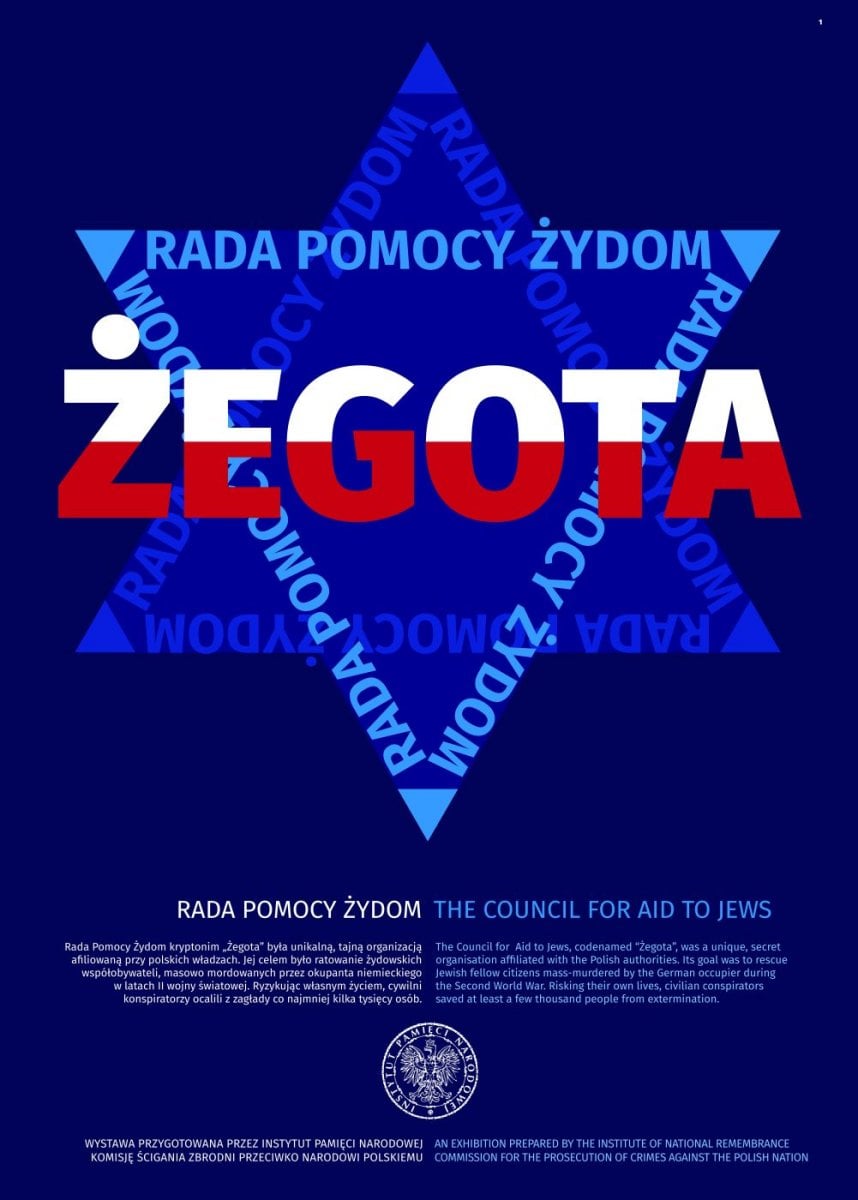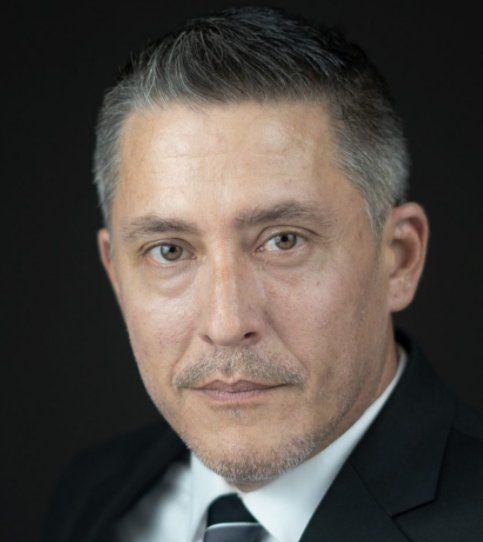ZEGOTA - the Polish council to aid Jews.
"When faced with crimes, one cannot remain passive. Whoever remains silent in the face of murder, becomes an accomplice to the murderer. Whoever does not condemn it, condones it."
This was Zofia Kossak's public appeal in “Protest”, issued by the Front for the Revival of Poland, the underground extension of the Catholic Action. That appeal became the symbolic beginning of the secret initiative to aid Jews, "Żegota".
If any group from World War II, the Holocaust should be known it should be Zegota. Zegota was unlike any other group in German-occupied Europe in what it did, what actions they took in regards to saving Jews. There was no other group like it.
Zegota was the secret code name for the Council for the Aid to the Jews. It was created through the efforts of two Catholic Polish women: Zofia Kossak and Wanda Krahelska-Filipowicz, both dedicated to the mission of helping
shelter the Jews from German persecution.
Both of these women had long been activists and were well-connected
with important members of the Polish Underground, who were themselves already involved in the same mission of saving Jews.
Together with others, they formed a formidable network. Much of the funding they received came from the Polish government-in-exile in London, as well as from other independent sources from within Poland and abroad.
Before Zegota whoever decided to escape from the ghetto or from a transport had to go into hiding. They needed false documents or had to remain in a hiding place. Individuals, as well as institutions, supported Jews, but that help was not organized in nature.
Also, only in occupied Poland did individuals face the severity of the death penalty for themselves and their whole family for aiding Jews, and tens of thousands of Poles were executed as such.
The officers of Zegota were comprised of representatives from various political parties: Adolf Berman, Secretary, from the Zionist Poale Zion Party; Leon Feiner, Vice-President, from the Bund, the Jewish Socialist Party; Julian Grobelny, President, from the Polish Socialist Party; Tadeusz Rek, Deputy, from the Peasant Party; Ferdynand Arczynski, Treasurer, from the Democratic Party; Wladyslaw Bartoszewski and Witold Bienkowski Liaison Directors, from the Catholic Front for Reborn Poland.
The leadership and members of Zegota established vital links with the Jewish Underground which brought them into contact with the Jewish community. They had "offices" in Krakow, Lwow, Zamosc, Lublin, and many areas throughout the Polish countryside, but its base was in Warsaw.
In the midst of the German terror, Zegota quietly organized its priorities, setting up plans of action and secretly recruiting candidates who were best equipped to implement the goals of the organization.
The Council dealt with the specific needs of the Jews, organized into departments: Legalization, Housing, Clothing, Medical Care, Finances, as well as anti-szmalcownik strategies, directed at unscrupulous Poles who preyed upon the Jews using blackmail or extortion.
Many of its members were part of the Home Army, the AK. Zegota's most important links were with Aleksander Kaminski and Henryk Wolinski, both from the AK. Kaminski was the editor of the Biuletyn Informacyjny (BI), the largest and most widely read underground newspaper.
Wolinski was the head of the Jewish section of the Underground Bureau of Information and Propaganda, and the main contact between the AK and the Jewish liaison of the ZOB (The
Jewish Fighting Organization). Witold Bienkowski, a very important key player, was a representative of the Delegatura ( The Home Delegation of the Polish government-in-exile.) Grobelny's contact with labor unions made it possible to obtain the assistance of railway workers to smuggle Jews out of Warsaw.
Irena Sendlerowa (Sendler) was among Zegota's first recruits. She was an administrator in the Warsaw Welfare Department and had an invaluable network established with many medical and social workers. She succeeded in smuggling 2,500 Jewish children out of the Warsaw Ghetto, and hid them with Polish and Austrian families.
She too was recognized as Righteous Among Nations, and in 1991 became an honorary citizen of the State of Israel. She condemned Catholics who claimed to love God but hated their Jewish neighbors and demanded sacrifices from others no less than what she risked doing herself. the Jews. In the summer of 1942, Kossack appealed to the Polish community in a scathing pamphlet entitled, "Protest" in which she urged Poles to help the Jews even if only to defy the German occupation.
Zegota was only one of three organizations dedicated to rescuing Jews. They were recognized by Yad Vashem as Righteous Among Nations.
Irena Sendlerowa (Sendler) was among Zegota's first recruits. She was an administrator in the Warsaw Welfare Department and had an invaluable network established with many medical and social workers. She succeeded in smuggling 2,500 Jewish children out of the Warsaw Ghetto, and hid them with Polish and Austrian families.
She too was recognized as Righteous Among Nations, and in 1991 became an honorary citizen of the State of Israel. She condemned Catholics who claimed to love God but hated their Jewish neighbors and demanded sacrifices from others no less than what she risked doing herself.
The financial resources needed to save even one Jewish life ranged from 6,000 to 15,000 zlotys. The monthly budget of Zegota ranged from 500,000 to 2 million zlotys - not even close to the money required to meet the demands of the organization. The main activities of Zegota dealt with forging documents for Jewish refugees.
On any given day, Zegota produced on average 100 forgeries. By the end of two years, they had secretly issued over 50,000 fake documents. Because of Zegota, 40,000 to 50,000 Jews were saved.
Despite the risks and dangers, all the leaders and members worked tirelessly in their mission. No one ever betrayed the organization, not even under threat of death.
Zegota maintained contact with the Jewish Underground even when the ghetto walls were erected. The Bund maintained contact with its counterpart - the Polish Socialist Party; and the Jewish Communists with their Polish counterparts, and so on from every level on the political spectrum,
In 1942, Dr. Adolf Berman, director of CENTOS, a Jewish charity established for the care of ghetto children, focused his energy on making Polish contacts on the outside with the goal of helping Jews escape the Ghetto.
Leon Feiner, member of the Bund, the largest Jewish political party had also escaped the Ghetto, and worked with the AK (Underground Army) and Delegatura. His appearance, that of a "Polish country squire" enabled him to travel all over Poland quite easily, armed with a collection of forgeries.
Zegotas' membership was enormous and included vast networks representing students, members of the Scout Association, Writer's Union, Underground Journalist Association, the Democratic Doctor's Committee, as well as railway, tramway, and sanitation department workers' organizations, and so on.
Its Headquarters was situated at 24 Zurawia Street, and held “office hours " twice each week during which couriers would pick up or request documents, clothing, or arrange for food, shelter or medicine for the Jews in hiding.
Despite the enormous number of people who knew the location of Zegota's head office, by a miracle it had never been raided by the Germans. Whenever they were under surveillance, they continued their administration in the homes of various other members.
Without the help of Zegota, and organizations like it, it would have been impossible to save even one Jew. Poland was the only German-occupied country where helping the Jews was punishable by death (for you and your whole family). But there were many Poles who risked their lives and the lives of their families in order to help the Jews.
One Polish man was caught tossing a sack of bread over the wall of the Warsaw Ghetto - and was instantly shot by the Nazis.
Throughout the war at least 20,000
members of Zegota were captured and executed by the Germans. Thousands more were imprisoned, tortured, and sent to concentration camps.
It is impossible to determine how many Poles helped the Jews. When the Nazis discovered Jews hiding in Polish homes, they were shot along with the Poles who were sheltering them.
Often entire families, friends, and neighbors were murdered. No witnesses remained to tell the story.
That many Poles did not attempt to help the Jews had more to do with terror of the Germans, than indifference towards the Jews.
We must all ask ourselves if we would have risked our lives and the lives of our own children to save people in similar circumstances.
[Editors Comment: There are some Jews today who acknowledge Zegota's mission but only grudgingly, and go so far as to complain that Zegota didn't save enough Jewish lives. This saddens me deeply. Far too many people are unaware of the fact that ethnic Poles were also targeted for annihilation, and their rescue missions had to proceed with the greatest of caution. Logistics and planning were necessary aspects of each case they encountered, and needless to say, required an inordinate amount of time and preparation. It was difficult enough for Poles to carry out their mission secretly, but to do so under the constant scrutiny of the Germans was nothing short of amazing. ]
Sources:
https://sprawiedliwi.org.pl/.../story-council-aid-jews...
polishgreatness
https://ipn.gov.pl/.../1339,IPNs-exhibition-quotZegota...



Dodaj
komentarz
By dodać komentarz musisz być zalogowany. Zaloguj się.
Nie masz jeszcze konta? Zarejestruj się.